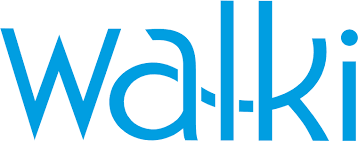Walki is answering to the growing demand for frozen food by expanding its portfolio of recyclable materials.
The global market for frozen food is expected to grow to 322 billion euros by 2026. Although the demand is growing globally across all age groups, it is especially popular among younger consumers.
“Frozen food is an ideal way to prolong shelf life without losing out on the vitamins. It is also an excellent way to combat food waste. This is important as up to 9 % of global carbon emissions can be attributed to food waste, especially fruit and vegetables”, says Dudley Jones, Consumer Sales at Walki.
Walki is introducing a broad portfolio of different materials, including printed solutions, to suit the needs of the frozen food market with the aim of making the packaging fully recyclable in the paper stream.
“Frozen food places high demands on the packaging. It needs to be both sturdy and puncture-resistant to handle diverse situations like pressures of sealing and mechanical tear during transportation. The packaging also needs to withstand variability in temperatures as some frozen food is defrosted in its packaging”, explains Jones.
Walki®EVO Seal and Walki®Opti Seal are recyclable paper-based packaging intended especially for pillow-pouches for frozen food. Walki®EVO Seal has a dispersion coating as barrier against water vapour and grease while Walki®Opti Seal has an optimised PE-extrusion coating.
“The dispersion coating makes Walki®EVO Seal recyclable in the waste-paper stream without any separation process, while the minimised PE-coating on Walki®Opti Seal makes it suitable to be recycled with paper with an acceptable fibre yield”, says Andreas Rothschink, Head of Product Development at Walki.
Both are suitable for all kind of frozen food: vegetables, seafood, bakery products to name a few.
Lamibel®MDO-PE is a film-based material for pillow pouches made of reverse printed MDO-film and solvent-free laminated with low sealing LDPE. Thanks to the MDO technology, the film thickness is minimized while performance is maximized by replacing other sorts of materials such as PP- or PET-films.
“This combination of two PE-films makes the packaging fully recyclable in the plastics stream. The stretched film has better optics with high stiffness and mechanical properties than standard PE. The film can also be transparent, allowing the consumer to see the product”, says Rothschink.
Lamibel®MDO-PE is an ideal material for all type of packaging (doypack, flowpack, pouches, etc.) as well as all kind of frozen food like vegetables, sharp-edges seafood and bakery.
Walki®Pack Tray is a board-based tray suitable for frozen ready-made meals, designed to replace aluminium, plastic or plastic-coated trays.
“The tray is easy to fill, transport and store, and is also the convenient choice for the consumer as the fibre-based tray is safe to use in microwaves and in conventional ovens up to 220 degrees for up to 60 minutes,” says Jones.
The tray material is 100% PET free and recyclable in the paper stream.
WALKI IN BRIEF
At Walki, we believe in a sustainable and circular tomorrow. Our mission is to accelerate the world’s transition into a zero waste future in packaging and promote the use of energy efficient materials across industries. Walki’s product solutions are designed to bring value to customers in many different markets; from sustainable materials for packaging applications to energy saving performance materials. Walki is a growing international group organized in three business areas: Consumer Packaging, Industrial Packaging and Engineered Materials, with operations in twelve different countries, both in Europe and Asia. In 2021, the Group’s annual turnover was approx. 550 million euros employing around 1500 people.
